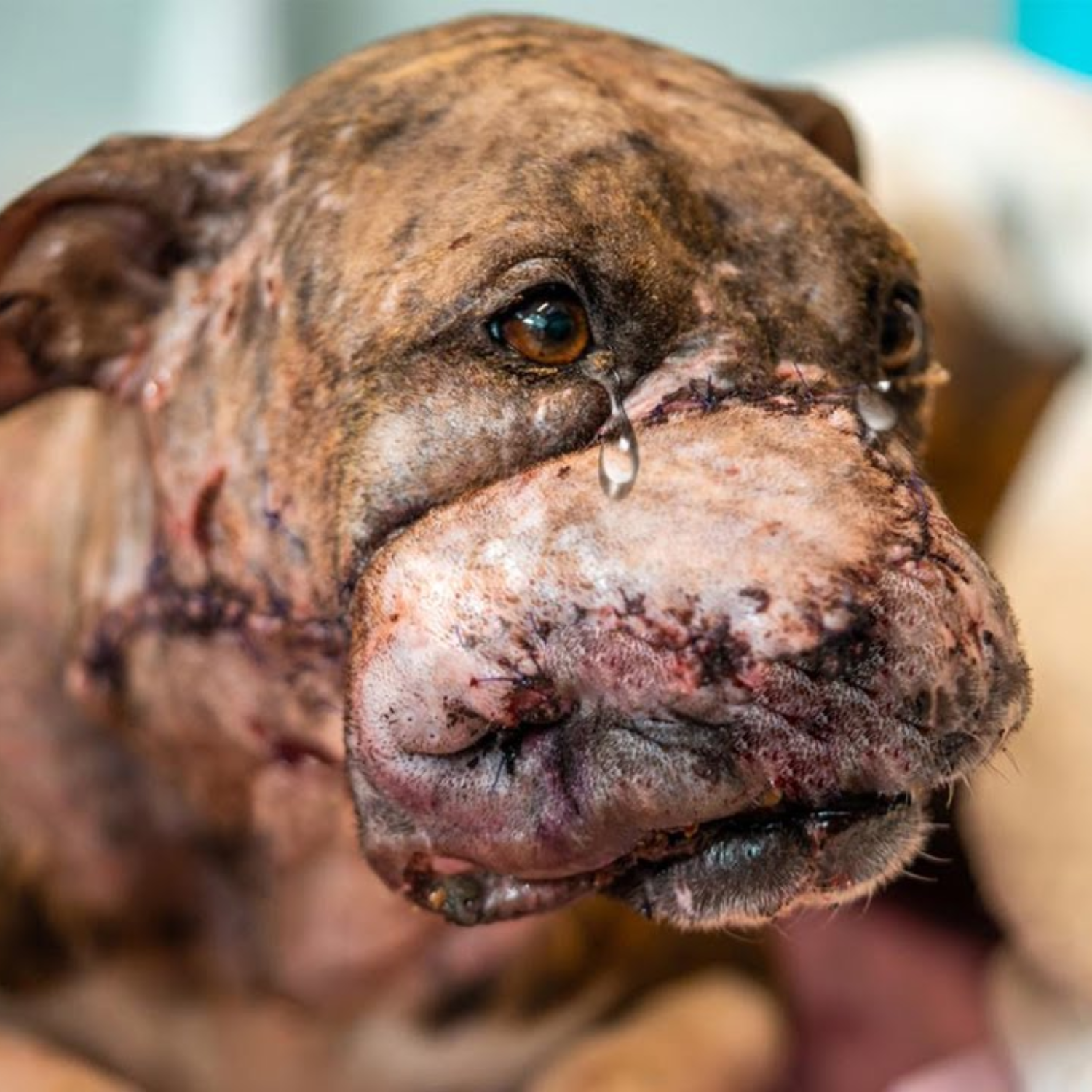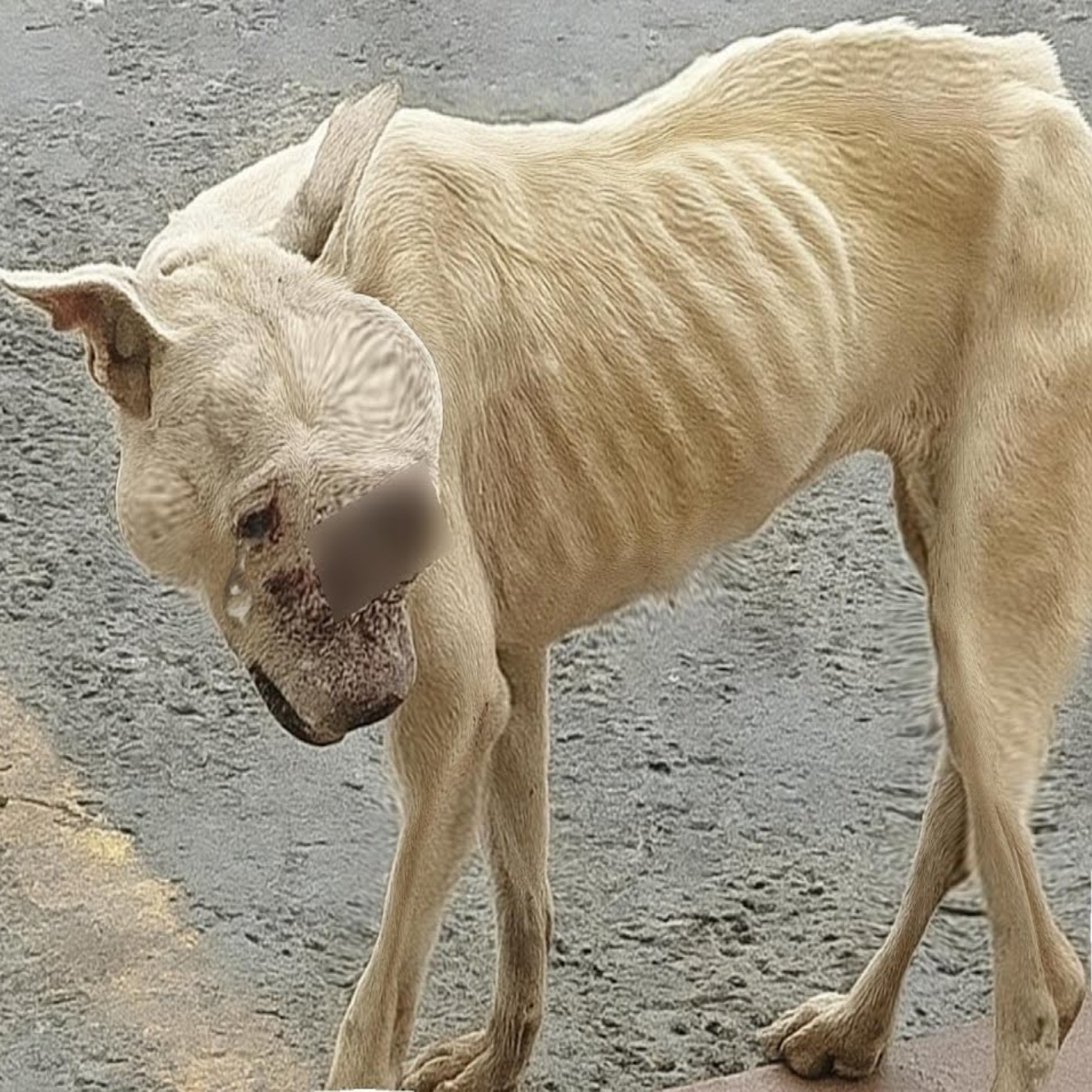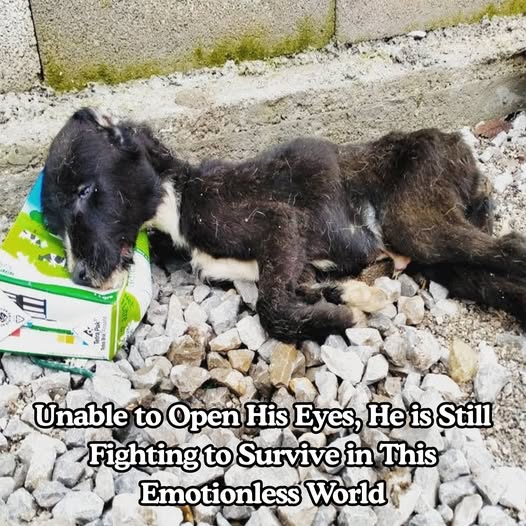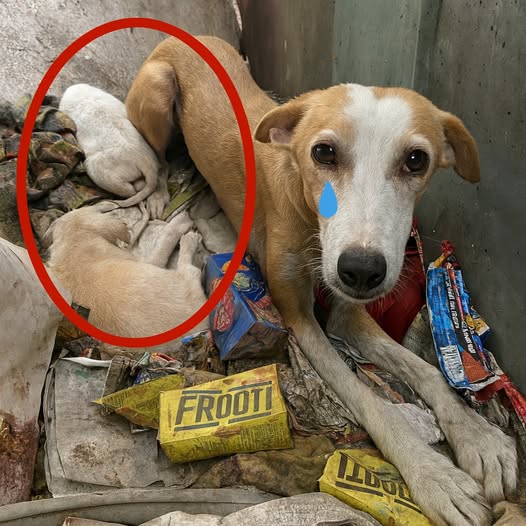Amora was just a street dog—lonely, fragile, but filled with an innocent desire for companionship. She had no home, no family, no safety. Yet despite her hardships, her heart remained gentle. She wagged her tail whenever someone passed by, her only wish to make a friend.
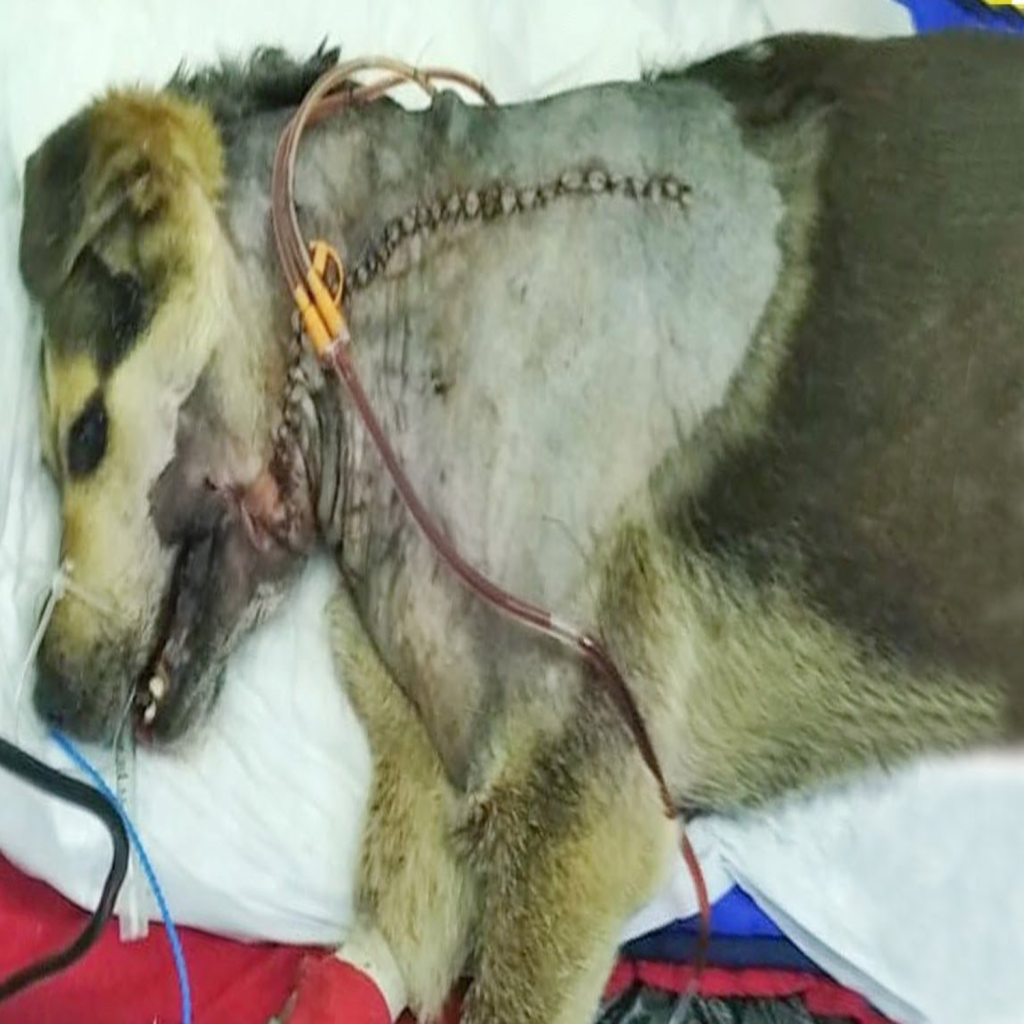
But that simple act of kindness, that small gesture of trust, was cruelly betrayed.
Instead of finding love, Amora was met with violence. Heartless people shot her, exploiting her friendliness as an easy opportunity to harm. No one knows what went through their minds at that moment—how they could look at a wagging tail and respond with bullets instead of kindness. What is certain is that their cruelty left Amora broken, bleeding, and on the verge of death.
When rescuers found her, the sight was unbearable. Her jaw had been shattered into countless fragments. A large, gaping wound marred her neck. Beneath her skin and even inside her body, fragments of bullets were lodged. Most shockingly, one bone fragment had traveled into her stomach—a ticking time bomb that could have killed her at any moment.
And yet, no one had stopped to help. For two days she lay in pain, standing in a puddle of water, silently begging for mercy from anyone who passed by.
Finally, she was taken into care. The fight for her life began immediately.
Her first surgery lasted nearly three hours, during which doctors worked tirelessly to repair the devastation in her body. The very next day, she endured a second surgery—a complex bone reconstruction to stabilize her jaw. Metal structures were fitted to hold her fragile bones together, and she underwent an esophagectomy to address internal damage.

The pain was immense. Even with the strongest painkillers, Amora whimpered and trembled. Her rescuers could do nothing but stroke her head, whispering encouragement and praying through their tears that she would survive. They called her their “little warrior,” urging her to keep fighting.
Day by day, the battle continued. Amora’s body was riddled with infection, and pus filled her mouth due to severe inflammation. Pain medications were administered constantly through her veins. To keep her spirits alive, her caregivers stayed by her side, telling her jokes, speaking gently, and reminding her she was loved.
At times, it seemed their efforts were futile. Amora rarely wagged her tail, her eyes clouded with exhaustion. But then, one day, she managed a faint wag—weak, but undeniable. It was proof that deep inside, she had not given up.
The progress was slow, but it was progress nonetheless. Antibiotics began to work, reducing the infection and clearing away dead tissue. Soon, Amora found the strength to stand. She rose shakily to her feet and greeted her rescuer. Her face, once etched with unbearable pain, now carried a spark of light.
Thirty days after her surgeries, the transformation was astonishing. The metal structure holding her jaw in place was removed, no longer needed. Her jaw remained fixed but stable enough that she could move without discomfort. When her caregiver looked into her eyes, what stared back was no longer just suffering—it was peace, trust, and hope. The doctors predicted that within another month, Amora would be able to eat on her own.

Her recovery brought joy not only to those who rescued her, but to everyone who witnessed her journey.
By day sixty, miracles had unfolded. Amora was feeding herself again, her esophageal tumor treated successfully. Her strength had returned, and she no longer needed constant medical supervision. The following day, she was officially discharged from the clinic. That moment was pure happiness—the culmination of endless nights of worry, fear, and determination.
Her caregivers cried tears of relief, thanking the veterinarians who had dedicated themselves so completely to saving her life. Everyone at the clinic admired Amora’s resilience. They had seen her at her lowest—broken, hopeless, clinging to life—and now they saw her walking proudly, her tail wagging not from desperation, but from genuine joy.
Amora had looked death in the face and refused to surrender.
Today, her days are filled with play, comfort, and affection. She has not allowed cruelty to extinguish her faith in people. Despite everything—despite the bullets, the pain, the surgeries—she still trusts, still loves, still seeks friendship with the same innocent heart she had before.
Her rescuers describe her eyes as “glittering gems,” full of warmth and gratitude. Anyone who meets her is instantly captivated, not just by her beauty, but by the story those eyes tell: a story of betrayal, suffering, courage, and finally, redemption.

Amora’s journey is not just about survival—it is about transformation. She represents the strength of every abused animal who, given the chance, can rise from misery to happiness. She is a reminder that kindness can rewrite the cruellest of fates.
From a puddle of despair to a life of joy, Amora’s story touches every heart it reaches. She wanted only a friend, and in the end, she found something even greater: a family, a future, and the love she had always deserved.
And if you ever look into her eyes, you will understand—why no matter how broken, no matter how betrayed, love always has the power to heal.
